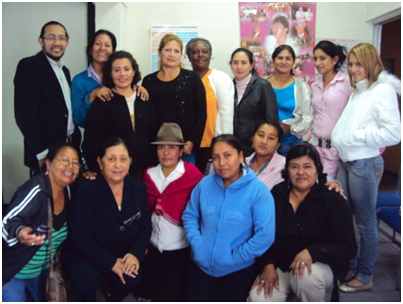Today is International Rural Women's Day!

ProLiteracy recognizes this day as an occasion to celebrate the advances rural women are making around the world. Rural women face many obstacles including access to education, human rights and domestic violence abuses, and minimal involvement in community decision or democratic participation. We celebrate this day and stand alongside rural women as they make changes in their communities and organize together to have a unified voice and bring awareness about the issues they face. ProLiteracy supports several programs around the world committed to helping rural women gain literacy skills. Those partner programs include: Asociación de Mujeres de Juntas Parroquiales Rurales del Ecuador (AMJUPRE) AMJUPRE is a grassroots nonprofit organization that has been working to promote the rights of indigenous women in Ecuador since 2003. Indigenous women living in rural areas are often the most marginalized within their communities and have limited access to jobs, education, or l...


